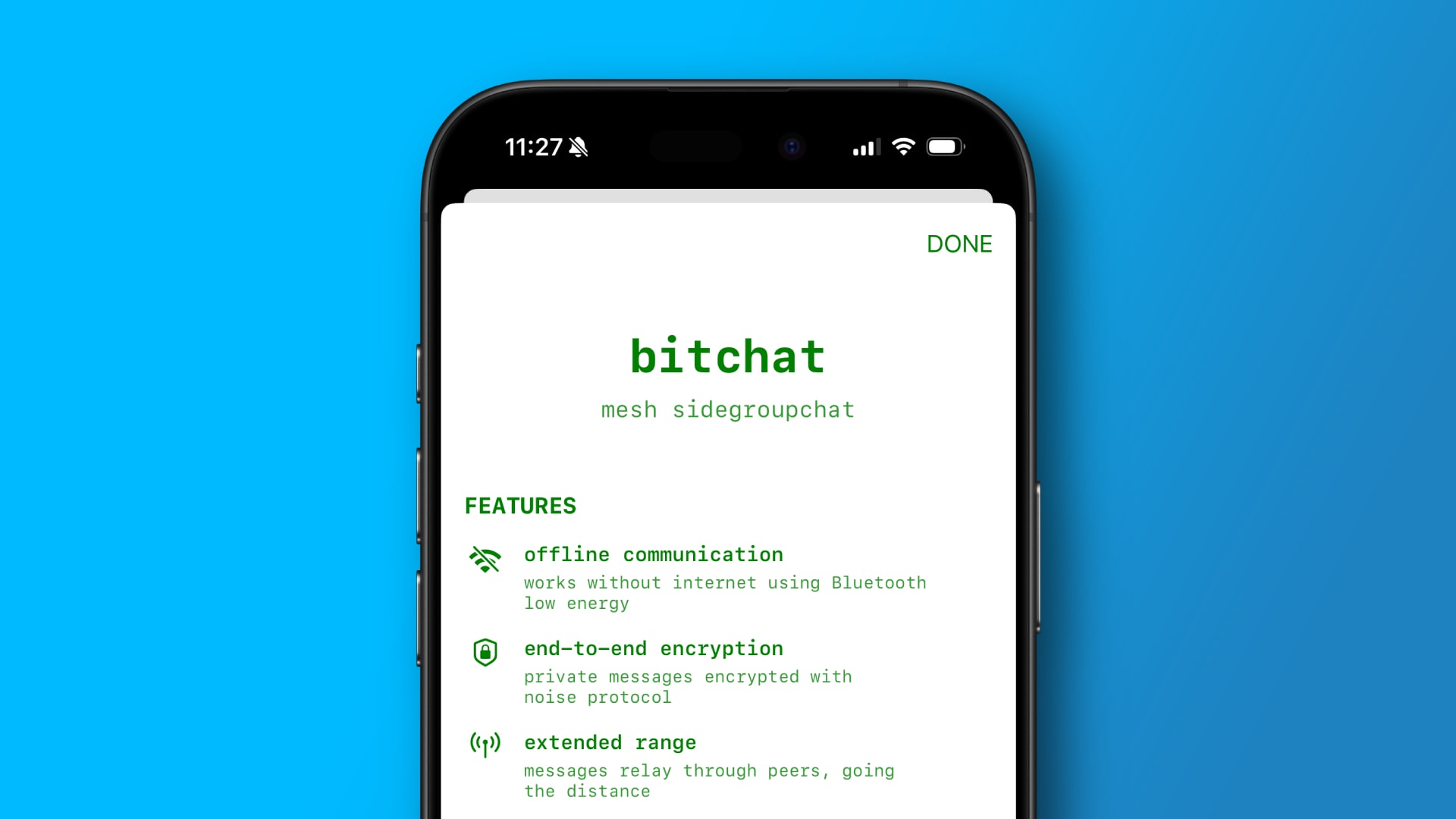Bitchat is a new private Bluetooth messaging app that doesn’t need the internet – here’s how it works
-
This post did not contain any content.
Where's the bitchat?
-
“Bitch at“
It's the ExpertSexchange of the 2020s!
-
It's the ExpertSexchange of the 2020s!
-
-
This post did not contain any content.
Bitchplz
-
This post did not contain any content.
Use Briar
-
Reminder that this is the same app that a few weeks ago was found to be advertised as secure when it was still experimental and without being audited, and for which multiple serious vulnerabilities were found before they added the disclaimer saying it was experimental:

Jack Dorsey says his 'secure' new Bitchat app has not been tested for security | TechCrunch
Dorsey admitted that his new messaging app had not been reviewed or tested for security issues prior to its launch.

TechCrunch (techcrunch.com)
It was very clearly advertised as experimental and insecure:
Warning
Private message and channel features have not received external security review and may contain vulnerabilities. Do not use for sensitive use cases, and do not rely on its security until it has been reviewed
-
This post did not contain any content.
"we have briar at home"
No thanks.
-
This post did not contain any content.
Briar is already audited lmao
The other option is Meshtashtic
Either is better than this amateur stuff
-
Genitalia (supposed to be gen-Italia - an Italian electricity company. They got rid of their web domain they they finally realized.)
-
It's the ExpertSexchange of the 2020s!
therapist, please
-
It was very clearly advertised as experimental and insecure:
Warning
Private message and channel features have not received external security review and may contain vulnerabilities. Do not use for sensitive use cases, and do not rely on its security until it has been reviewed
As the TechCrunch article I shared says, that warning was added only after the multiple vulnerabilities listed were found and publicised, and the original article in this post didn't mention the vulnerabilities or it being experimental either.
-
I can see a use case for sending files from phone to phone, but wouldn't you just talk to someone if you're that close?
Also, I wonder what the theoretical range is? How many relay points will a message go through?
I can answer a couple of those questions. It will go through up to seven devices and with Bluetooth maximum range of 300 meters you can get 6,800 feet or around 1.2 miles at maximum.
Mind you, that would be with everything perfectly done, so it most likely won't be that far.
-
The Foreign Censorship Threat: How the European Union’s(EU) Digital Services Act(DSA) Compels Global Censorship and Infringes on American Free Speech
Technology 1
1
-
-
-
-
-
Apple business executives ban Fortnite from iOS. People around the world - including in Europe - say their iPhone is preventing them from playing the videogame.
Technology1
-
-
SSD prices predicted to skyrocket throughout 2024 — TrendForce market report projects a 50% price hike | Tom's Hardware
Technology 1
1






